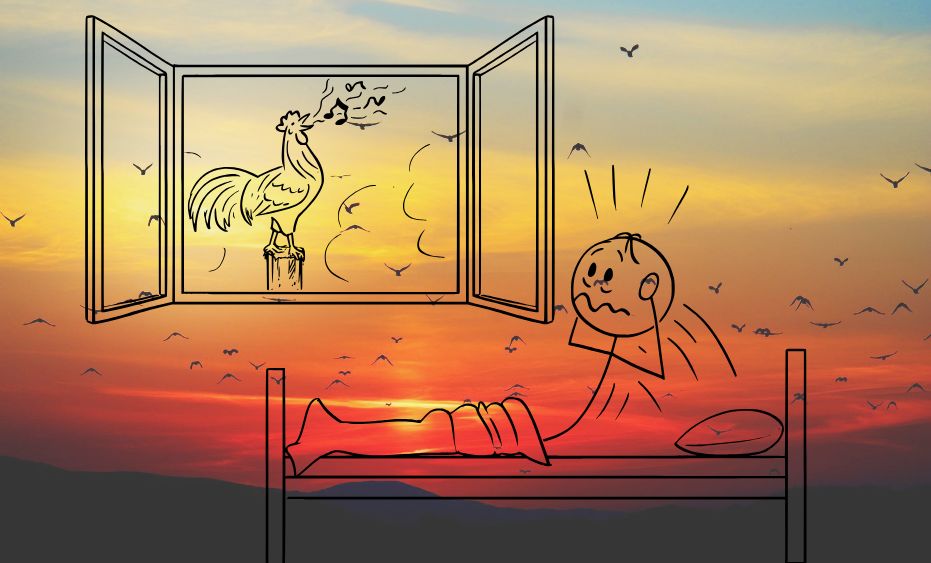It’s 5 a.m., and you’re dreaming peacefully when – cock-a-doodle-doo! – a rooster decides it’s time for you to wake up. Sound familiar? Whether you live near a farm or just hear the occasional crow while visiting the countryside, you’ve probably wondered: Why do roosters crow so early?
Let’s clear up a few misconceptions along the way.
So, Why Do Roosters Crow?
Roosters aren’t just morning show-offs. Their crowing is tied to an internal biological clock. Even before the sun rises, their circadian rhythm kicks in, signaling it’s time to announce the day. This is their way of saying, “Good morning, world! I’m in charge here.”
I used to think roosters only crow at sunrise. That was until a neighbor’s rooster decided to remind me at 3 a.m. that light from a streetlamp can fool their biological clock. Turns out, roosters don’t care about human schedules – they respond to light, whether it’s natural or artificial.
At What Time Do Roosters Crow?
Typically, roosters start crowing about an hour before sunrise. But don’t be surprised if you hear one long before dawn. Artificial lights, territorial rivalries, or even a loud noise can set them off.
On one trip to the countryside, I remember hearing one particularly persistent rooster crow every hour. It was as if he was conducting hourly roll calls for the barnyard.
Do They Only Crow in the Morning?
Absolutely not! Roosters crow all day long. The morning crow might be their most famous act, but they’ll crow to:
- 1. Assert dominance over other roosters.( This is my territory. )
- 2. Communicate with their hens.( Hey hens, I’m here. )
- 3. Respond to noises or potential threats.( What was that noise? I’d better announce it. )
It’s like their version of texting – except it’s loud and constant.
Honestly, I’ve heard roosters crow during lunch, dinner, and even in the middle of the night. It’s like they’re on their own schedule, ignoring ours entirely.
What About Hens? Can They Crow Too?
Hens don’t crow, at least not like roosters. They cluck, chirp, and occasionally make loud noises, especially after laying eggs. However, in rare cases – usually when there’s no rooster around – a dominant hen may develop rooster-like behaviors, including crowing. Nature, huh?
Are Chickens and Roosters the Same?
Here’s a common question I get asked: Are chickens and roosters different? Technically, roosters are chickens, but not all chickens are roosters. Chickens refer to the species as a whole, while roosters are the adult males. Hens are the adult females, and chicks are their babies.
Think of it this way: all squares are rectangles, but not all rectangles are squares. Same idea with chickens and roosters!
Who’s the Boss? The Secret Behind Crowing Hierarchies
If there’s more than one rooster around, you might notice a pattern. The dominant rooster usually crows first, asserting his authority. The other roosters follow, creating a rooster version of “follow the leader.” It’s both fascinating and slightly annoying when you’re trying to sleep.
Roosters crow because they’re wired to greet the day and communicate with their surroundings. Whether it’s at dawn or an inconvenient 3 a.m., their crows serve a purpose – even if it’s just to remind us who’s boss in the barnyard.
So the next time you hear a rooster’s loud call, take a moment to appreciate their quirky charm. Just maybe invest in some earplugs if you’re not a morning person like they are.














